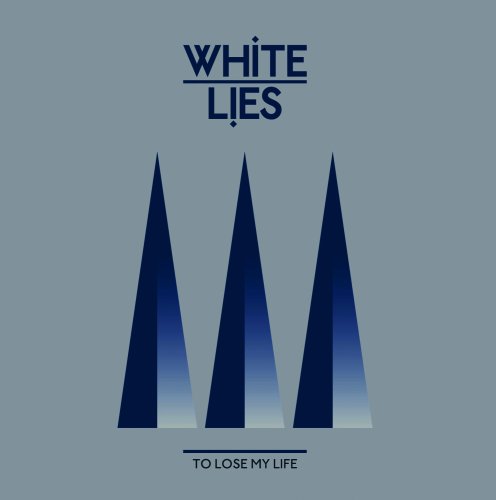
White Lies
To Lose My Life
Release Date: Mar 17, 2009
Genre(s): Rock, Alternative
Record label: Geffen/Fiction
Music Critic Score
How the Music Critic Score works
Album Review: To Lose My Life by White Lies
Average, Based on 5 Critics
Based on rating 7/10
The dawning of a New Year always brings with it the music industry's "hot tips" for the next twelve months, in many cases representing little more than a bunch of artists who've been snapped up by major labels before being unleashed (via mass advertising budgets and such like) on Joe Public. If last year's main contenders Adele and Duffy became success stories purely off the back of the absence of a certain drug-troubled beehived soul songstress, then it would be hard to see where White Lies are meant to fit into the obviously marketable demographic scheme of things, particularly as the current artists their sound most resembles, Editors and The Killers, have new albums and sell-out Arena tours already in progress for 2009. While there's no doubt that a dose of familiarity will always keep the cash registers pinging, rather than something ostentatious and ambitiously original, maybe, just maybe, on this occasion the reason why the spotlight is shining so brightly on this West London trio is simply down to the quality of their songs, because make no mistake, if To Lose My Life is anything to go by, White Lies have an armoury of them in abundance.
Based on rating 6/10
As one of the first über-hyped British releases of 2009, there will invariably be three standard responses to White Lies' début album, To Lose My Life: 1) Believe the hype! The best British guitar band since, er, Bloc Party. 2) Screw the hype: first Editors, now this. What have we done to deserve such a barrage of mediocrity? 3) A boring, needlessly wordy essay on that, after balancing the pros and cons, concludes 'it's kind of OK'.
Based on rating 2/5
White Lies are this year's strongest prospect for a big new British rock group. A trio comprising Harry McVeigh, Jack Lawrence-Brown and Charles Cave, three misery-spouters from London's leafy Chiswick, their songs take the much-sieved grains of mope-rock, popularised in recent years by Interpol, Editors and the Killers, and add further lashings of Joy Division doom and Duran Duran pomp. The results are oddly compelling, if only for the ridiculous way in which their lyrics handle fear, death and despair.
Based on rating 4.0/10
Two months after Ian Curtis died, Bono stopped by the desk of Factory Records founder Tony Wilson and said something like, "Now he's gone, I promise you I'll do it for him." At least that's what Wilson later told critic Simon Reynolds. U2 soldiered on without Joy Divison's gothy glamor, and of course Bono wasn't the only one carrying an unforgettable fire for Curtis. Then and since, a long list of bands have tried fusing U2's stadium-size grandiosity with Joy Division's bleak foreboding.
Based on rating 2/5
Comparing White Lies to Joy Division is like Alan Partridge saying Wings were the band the Beatles could've been. In fact, to suggest these gloom-dealing Brits have any connection to JD other than thievery might invite Ian Curtis to haunt your nightmares until you carve the word Closer into your chest with a rusty razor blade. [rssbreak] Songs like Death and Nothing To Give are strident due to big production and well-placed hooks.

